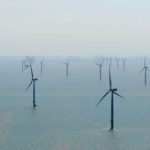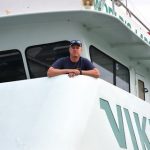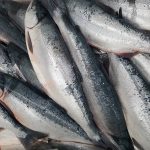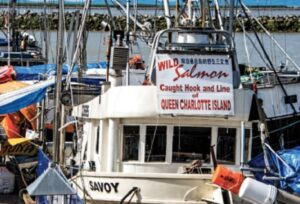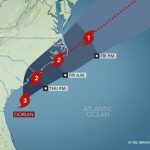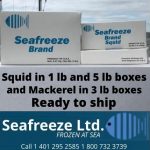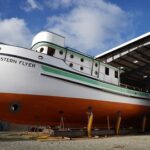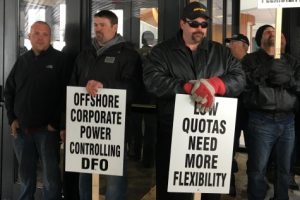Tag Archives: State of Maine
Maine’s massive “floating wind” folly — my report
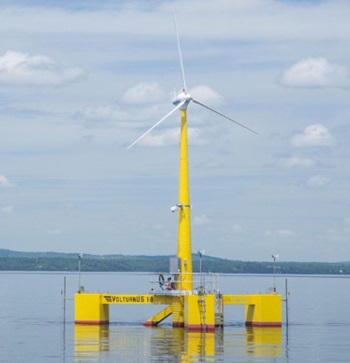 Below is my Executive Summary, followed by the latest bad news on this ongoing silly saga. This report examines several fundamental aspects of the State of Maine’s offshore wind development plan. It is divided into two parts. Part 1 examines certain economic issues, such as feasibility, cost, and progress to date. Part 2 explores the proposed development as it relates to the entire Gulf of Maine, namely because the project has not advanced to the point where the State of Maine’s responsibilities have been defined. The offshore wind plan calls for development of 3,000 MW of generating capacity, an amount that is roughly double Maine’s average electricity usage. The viability of Maine’s offshore wind plan depends entirely on the massive transformation of the state’s grid from fossil fuel use to electrification. It is clear that the citizens of Maine have not been informed of this vast transformation requirement. They have certainly not approved it. more, >>CLICK TO READ<< 09:34
Below is my Executive Summary, followed by the latest bad news on this ongoing silly saga. This report examines several fundamental aspects of the State of Maine’s offshore wind development plan. It is divided into two parts. Part 1 examines certain economic issues, such as feasibility, cost, and progress to date. Part 2 explores the proposed development as it relates to the entire Gulf of Maine, namely because the project has not advanced to the point where the State of Maine’s responsibilities have been defined. The offshore wind plan calls for development of 3,000 MW of generating capacity, an amount that is roughly double Maine’s average electricity usage. The viability of Maine’s offshore wind plan depends entirely on the massive transformation of the state’s grid from fossil fuel use to electrification. It is clear that the citizens of Maine have not been informed of this vast transformation requirement. They have certainly not approved it. more, >>CLICK TO READ<< 09:34
Maine’s mysterious floating wind research
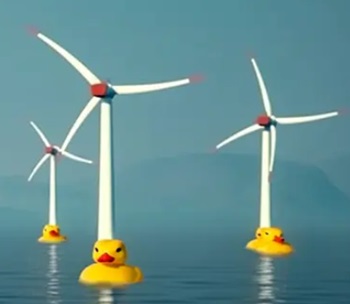 The State of Maine just got a very strange offshore wind lease from the Feds. They call it a research lease as opposed to a commercial development lease. It has some mysterious features that are worth pondering. There may even be a many billion-dollar trick here. We consider that at the end, after briefly explaining the mysteries. To begin with, the lease is for a 144 MW “research array” of turbines, as it is called. Well, 144 MW is huge for research. The South Fork Wind site (fixed, not floating) that is already running is a 12-turbine, 132 MW commercial facility, so this array will be bigger than commercial. It could cost $3 billion-plus the cost of the factory to make the dozen or so floaters. Different websites suggest different turbine sizes from 10 to 12 MW. Of course, if this is really research, they might use a variety of sizes, but the total is still huge. more, >>CLICK TO READ<< 12:14
The State of Maine just got a very strange offshore wind lease from the Feds. They call it a research lease as opposed to a commercial development lease. It has some mysterious features that are worth pondering. There may even be a many billion-dollar trick here. We consider that at the end, after briefly explaining the mysteries. To begin with, the lease is for a 144 MW “research array” of turbines, as it is called. Well, 144 MW is huge for research. The South Fork Wind site (fixed, not floating) that is already running is a 12-turbine, 132 MW commercial facility, so this array will be bigger than commercial. It could cost $3 billion-plus the cost of the factory to make the dozen or so floaters. Different websites suggest different turbine sizes from 10 to 12 MW. Of course, if this is really research, they might use a variety of sizes, but the total is still huge. more, >>CLICK TO READ<< 12:14
Highway Funds Illegally used for Floating Wind Factories
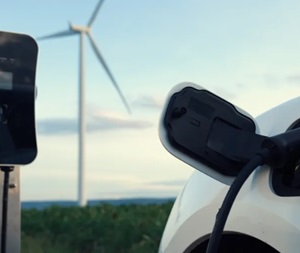 The Biden Administration is illegally redirecting hundreds of millions of dollars in highway grant money to fund construction of floating wind manufacturing facilities. The funding mechanism is the INFRA Grant Program in Biden’s Transportation Department. To begin with, here is how the website describes the Program: “What is the INFRA program? INFRA (the Nationally Significant Multimodal Freight & Highway Projects program) awards competitive grants for multimodal freight and highway projects of national or regional significance to improve the safety, efficiency, and reliability of the movement of freight and people in and across rural and urban areas.” Projects typically range from as little as $8 million up to $200 million. Here is their list of eligible projects, which is pretty clear and simple,,, more, >>CLICK TO READ<< 14:36
The Biden Administration is illegally redirecting hundreds of millions of dollars in highway grant money to fund construction of floating wind manufacturing facilities. The funding mechanism is the INFRA Grant Program in Biden’s Transportation Department. To begin with, here is how the website describes the Program: “What is the INFRA program? INFRA (the Nationally Significant Multimodal Freight & Highway Projects program) awards competitive grants for multimodal freight and highway projects of national or regional significance to improve the safety, efficiency, and reliability of the movement of freight and people in and across rural and urban areas.” Projects typically range from as little as $8 million up to $200 million. Here is their list of eligible projects, which is pretty clear and simple,,, more, >>CLICK TO READ<< 14:36
Maine commercial fisheries jump $25M in value, with strong boat price for lobster
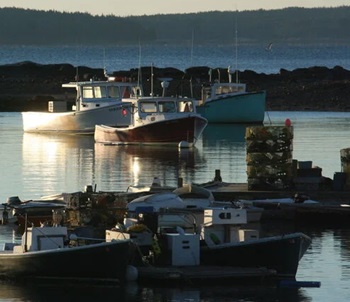 Commercial fishermen in Maine had a strong year in 2023. The value of the state’s fisheries increased by more than $25 million over 2022, for a total of $611.3 million at the dock, according to preliminary data released by the Maine Department of Marine Resources. The department attributed much of the increase to a strong boat price for lobster, Maine’s most valuable species last year. The price paid to fishermen went from $3.97 per pound in 2022 to $4.95 per pound in 2023, netting harvesters an additional $72 million compared to the previous year, for a total value in 2023 of $464.4 million. “The price Maine lobstermen received last year is a reflection of the continued strong demand for this iconic seafood,” said Patrick Keliher, the department’s commissioner. more, >>click to read<< 10:19
Commercial fishermen in Maine had a strong year in 2023. The value of the state’s fisheries increased by more than $25 million over 2022, for a total of $611.3 million at the dock, according to preliminary data released by the Maine Department of Marine Resources. The department attributed much of the increase to a strong boat price for lobster, Maine’s most valuable species last year. The price paid to fishermen went from $3.97 per pound in 2022 to $4.95 per pound in 2023, netting harvesters an additional $72 million compared to the previous year, for a total value in 2023 of $464.4 million. “The price Maine lobstermen received last year is a reflection of the continued strong demand for this iconic seafood,” said Patrick Keliher, the department’s commissioner. more, >>click to read<< 10:19
Commercial fisheries landings increased more than $25 million in value in 2023
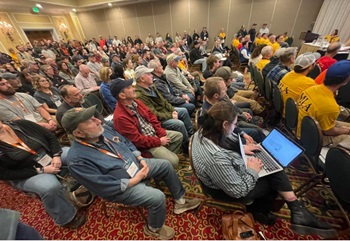 Preliminary numbers for commercial seafood landings in 2023 released today show a strong year for the industry, with commercial fishermen earning $611,277,692 — an increase of $25 million — for 204,684,775 pounds of seafood brought in to state docks. Despite a warming Gulf of Maine, intense storms and the damage to working waterfronts and lower lobster landings, “the Maine seafood industry continues to be a powerful economic engine for our state,” said Governor Janet Mills. Statewide, 93,734,116 pounds of lobsters landed on docks for a $461,371,720 value, an increase of about $72 million. The value represents what is paid at the docks to fishermen, dollars that flow throughout local communities and the state’s overall economy. Stonington is the top port for commercial seafood value this year, bringing in $47.37 million of value, and the second port, behind Portland, for pounds — 13.98 million. more, >>click to read<< 12:54
Preliminary numbers for commercial seafood landings in 2023 released today show a strong year for the industry, with commercial fishermen earning $611,277,692 — an increase of $25 million — for 204,684,775 pounds of seafood brought in to state docks. Despite a warming Gulf of Maine, intense storms and the damage to working waterfronts and lower lobster landings, “the Maine seafood industry continues to be a powerful economic engine for our state,” said Governor Janet Mills. Statewide, 93,734,116 pounds of lobsters landed on docks for a $461,371,720 value, an increase of about $72 million. The value represents what is paid at the docks to fishermen, dollars that flow throughout local communities and the state’s overall economy. Stonington is the top port for commercial seafood value this year, bringing in $47.37 million of value, and the second port, behind Portland, for pounds — 13.98 million. more, >>click to read<< 12:54

U.S. District Court Judge James E. Boasberg rejects bid to block to new lobstering rules
A federal judge on Thursday shot down a challenge by lobstering groups to federal rules intended to protect endangered North Atlantic right whales. U.S. District Court Judge James E. Boasberg rejected a bid by the Maine Lobstermen’s Association, the Massachusetts Lobstermen’s Association and the state of Maine to block federal regulators from imposing new limits on where and how lobstermen can fish in federal waters. The court, which had previously ruled that new federal regulations didn’t go far enough in protecting right whales, said Thursday that the state and lobstering groups couldn’t delay or derail the regulations. Boasberg rejected the lobstering groups’ contention that the National Marine Fisheries Service’s regulations overstated the risk that lobstering posed to the whales and overregulated the industry. >click to read< 20:04
Governor Mills Blasts Federal Court Decision in Lawsuit Challenging Federal Regulations Hurting Maine’s Vital Lobster Industry >click to read<

Gulf of Maine: Lawsuits over North Atlantic right whale regulations coming to boil
Lobsterman Brian Cates lives so far at the edge of Maine he can look out the windows of his house and see Canadian boats out in Canadian waters. Cates and other New England lobstermen are worried about how the coming regulations issued by the National Marine Fisheries Service will affect their livelihoods. Cates fishes in disputed waters. There, around the mouth of the Bay of Fundy, there’s a strip of ocean claimed by both Canada and U.S. alike called the grey zone. Cates fishes up against Canadian lobstermen, their traps and lines often getting caught up on one another. And the rules coming down from the federal government are not helping, >click to read< 19:14
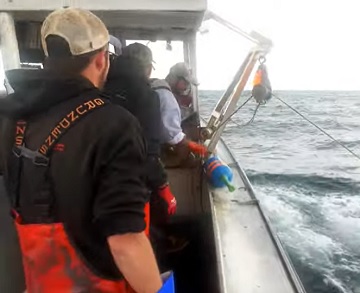
Save the Gulf of Maine – The Maine Reset, Ep. 4: Never Forgotten
Derek Colbeth grew up lobstering, and then served for 5 years in the US Marine Corps. Now he’s a civilian again, but his heritage and livelihood is under attack on all fronts. Powerful interests are converging in a war against Maine Lobstermen. If Lobstermen lose this fight, Maine will never be the same. >Video, click to watch< 14:35
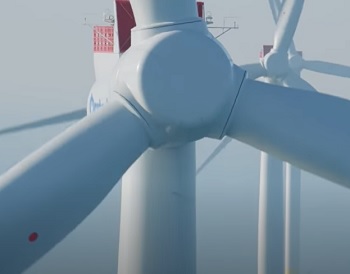
Save the Gulf of Maine – The Maine Reset, Ep.3: This is an Experiment
In this episode, interviews with two brilliant people that you won’t want to miss regarding offshore wind development in Maine. Carla Guenther PhD brings an oceanography perspective, and Long Island Commercial Fisherman Steve Train lays out some practical wisdom as only a fisherman can. Sandwiched in there are some of my own antics lampooning the empty suits from corporations who want to confiscate our ocean., >Video, click to watch< 13:15 ocean industrialization
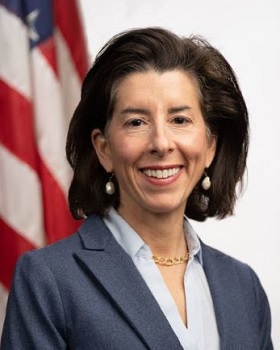
Collins criticizes onerous, unfair regulations on lobster industry
At a Senate Appropriations Subcommittee hearing, U.S. Senator Susan Collins questioned Commerce Secretary Gina Raimondo about several important issues facing the State of Maine, including the unfair right whale rule as well as the implementation of the bipartisan infrastructure bill’s broadband provisions to expand high-speed Internet. Senator Collins has been steadfastly opposed to NOAA’s flawed Atlantic Large Whale Take Reduction Rule, which is harming Maine’s lobster industry without meaningfully protecting whales. Even though NOAA’s own data show Maine’s lobster industry has never been linked to the death of a right whale, NOAA proceeded to close more than 950 square miles of productive ocean area to lobster fishing this winter. Video, >click to read< 18:29
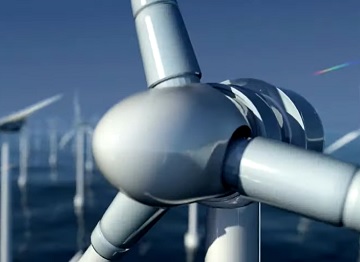
Save the Gulf of Maine – The Maine Reset Part 2, Fait Accompli?
First, we look at a basic chronology of the interplay between the State of Maine, the University of Maine, and private entities RWE Renewables and Diamond Offshore Wind (subsidiary of Mitsubishi) as they have joined forces in a venture of enormous importance. They partnered on a prototype of future wind turbines (Aqua Ventus I). Then they began working on an array of a dozen turbines. How many more turbines will follow? The wind developers have been clear that the first array is only the beginning of industrializing the Gulf of Maine. Then, we look in detail at some of the likely 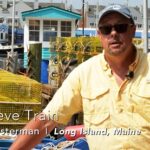 environmental impacts of industrial floating wind on marine life. It’s not a pretty picture. Yet, many large entities whose missions include protecting the environment have given ocean industrialization their blessing. Will they change their minds when they learn the full scope of impact? Video, Click to watch<, Watch the first episode, Road to Disaster – Voices of Maine Lobstermen >click to watch< 11:01
environmental impacts of industrial floating wind on marine life. It’s not a pretty picture. Yet, many large entities whose missions include protecting the environment have given ocean industrialization their blessing. Will they change their minds when they learn the full scope of impact? Video, Click to watch<, Watch the first episode, Road to Disaster – Voices of Maine Lobstermen >click to watch< 11:01
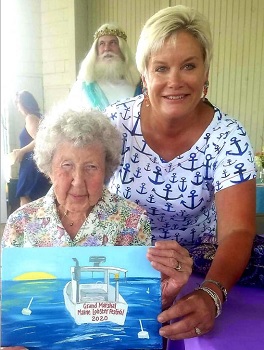
The “Lobster Lady” is honored as Grand Marshal for Sea Goddess Coronation
At the 73rd Sea Goddess Coronation luncheon Aug. 8, visitors honored the 2020 Grand Marshal for the parade, who is Virginia Oliver (also known as “The Lobster Lady”). Oliver recently celebrated her 100th Birthday and is the oldest licensed lobster fishing person in the state of Maine. >click to read< 17:58
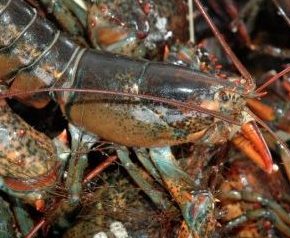
State of Maine: Lobstermen are feeling the pinch
Maine lobstermen are in a world of hurt, caught in a two-pronged assault on their livelihood. The pincer claw is the pandemic, causing their market to collapse. The crusher claw? That would be the latest lawsuit over whale rules.,, Even the elders in the fishing community are rattled. They are usually the ones who face fluctuations in the market with zen-like calm. It’s been down before, they say, and it will come back. Every year is not going to be a record-breaker. This time they’re worried. Younger fishermen who have gotten accustomed to record catches every year have taken on significant debt (bigger boats, newer trucks) and are freaking out. Jill Goldthwait >click to read< 11:09

State of Maine: Real consequences of whale rules
Here we go again. Federal fisheries regulators have been tightening the screws on Maine lobstermen for decades. Now they are planning to take another turn in an effort to reduce “the risk of death or injury” to right whales by 60 percent. In the late 1990s, a trap limit was introduced in the fishery for the first time. It was controversial on the coast, though many lobstermen were willing to go along. The initial limit was set at 1,200, which even the fishermen said was too high, but anything lower was likely to fail in a skeptical Legislature. Shortly after the passage of that,,,By Jill Goldthwait >click to read<09:57
U.S. Department of Justice seeks to join Maine tribal lawsuit over the enforcement of fishing regulations by the State of Maine
 The tribe seeks to stop Maine game wardens from policing the river and preventing tribal members from engaging in sustenance fishing. “The nation’s jurisdiction over sustenance fishing by its members in the Penobscot River is an exercise of its inherent sovereign authority, as a matter of federal law, and it remained intact; it has never been surrendered by treaty or by an act of Congress,” the lawsuit claimed. more@bdn 13:51
The tribe seeks to stop Maine game wardens from policing the river and preventing tribal members from engaging in sustenance fishing. “The nation’s jurisdiction over sustenance fishing by its members in the Penobscot River is an exercise of its inherent sovereign authority, as a matter of federal law, and it remained intact; it has never been surrendered by treaty or by an act of Congress,” the lawsuit claimed. more@bdn 13:51
State of Maine should respect history when setting elver fishing rules
 The Passamaquoddy were recently accused of putting glass eels in danger through their harvesting practices. In 2012, the Passamaquoddy harvested a total of 800 pounds of the state total of 19,000 pounds…Passamaquoddy practices are based in conservation. They limit the total harvest, but, by issuing many licenses, more Passamaquoddy people can benefit from the fishery. continued
The Passamaquoddy were recently accused of putting glass eels in danger through their harvesting practices. In 2012, the Passamaquoddy harvested a total of 800 pounds of the state total of 19,000 pounds…Passamaquoddy practices are based in conservation. They limit the total harvest, but, by issuing many licenses, more Passamaquoddy people can benefit from the fishery. continued


































